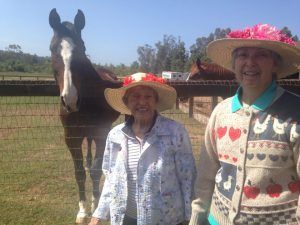
How Diet and Exercise May Help Prevent Alzheimer’s
Alzheimer’s disease is one of the most challenging conditions of our time, affecting millions of individuals and families around the world. While there’s currently no cure, growing research shows that lifestyle choices — particularly diet and exercise — may play a powerful role in protecting the brain and reducing the risk of cognitive decline.
By nourishing the body and staying active, we can support brain health, boost memory, and improve overall well-being well into our later years.
The Brain-Body Connection
The brain may seem separate from the rest of the body, but it relies on the same systems that keep everything else functioning. Blood flow, oxygen levels, hormone balance, and inflammation all influence how well our brains perform.
A heart-healthy lifestyle is also a brain-healthy one. What’s good for the heart — such as proper nutrition, regular movement, and good circulation — supports brain cells and may help prevent the buildup of harmful plaques and tangles associated with Alzheimer’s disease.
The Role of Diet: Feeding Your Brain Right
Diet plays a major role in protecting brain health. Studies suggest that certain eating patterns, like the Mediterranean and MIND diets, can significantly lower the risk of Alzheimer’s and other forms of dementia.
These diets emphasize whole, unprocessed foods that nourish the brain and reduce inflammation. Key components include:
Fruits and Vegetables: Especially leafy greens, berries, and colorful produce rich in antioxidants and vitamins.
Whole Grains: Such as oats, brown rice, and quinoa, which help maintain steady energy and blood sugar levels.
Healthy Fats: Omega-3 fatty acids from fish (like salmon, sardines, and trout), olive oil, and nuts support brain cell structure.
Lean Proteins: Beans, legumes, and poultry provide energy without excess saturated fat.
Limited Red Meat and Sugar: Reducing processed foods, sweets, and fried items can lower inflammation and protect blood vessels in the brain.
Hydration also matters — staying well-hydrated helps with concentration and memory function.
The takeaway? Eating a balanced, nutrient-rich diet isn’t just good for your body — it’s one of the most important things you can do for your mind.
The Power of Exercise: Moving Toward a Healthier Brain
Exercise is one of the most effective tools for Alzheimer’s prevention. Physical activity increases blood flow to the brain, stimulates the growth of new neurons, and supports the release of brain-derived neurotrophic factor (BDNF), a protein linked to memory and learning.
Even moderate exercise — such as brisk walking, swimming, dancing, or cycling — can make a big difference. Experts recommend at least 150 minutes of moderate aerobic activity per week, along with strength training two to three times weekly to support muscle and bone health.
Exercise also helps manage conditions that can raise Alzheimer’s risk, including high blood pressure, diabetes, and obesity. Beyond its physical benefits, regular movement can improve sleep quality, reduce stress, and lift mood — all of which are crucial for maintaining cognitive function.
Combining Habits for Maximum Impact
The real power comes when diet and exercise work hand in hand. Following a healthy diet while maintaining an active lifestyle can lower inflammation, improve blood flow, and strengthen neural connections in the brain.
Adding other healthy habits — like social engagement, mental stimulation, and adequate rest — can further protect against cognitive decline. Activities such as reading, puzzles, or learning a new skill also challenge the brain and help it stay sharp.
A Healthier Today for a Stronger Tomorrow
While there’s no guaranteed way to prevent Alzheimer’s, taking proactive steps through diet and exercise can make a meaningful difference. Every nutritious meal, every walk, and every effort to stay active helps build resilience for the mind and body alike.
By making brain-healthy choices today, we’re investing in a future filled with clarity, independence, and quality of life — one mindful meal and one step at a time.



